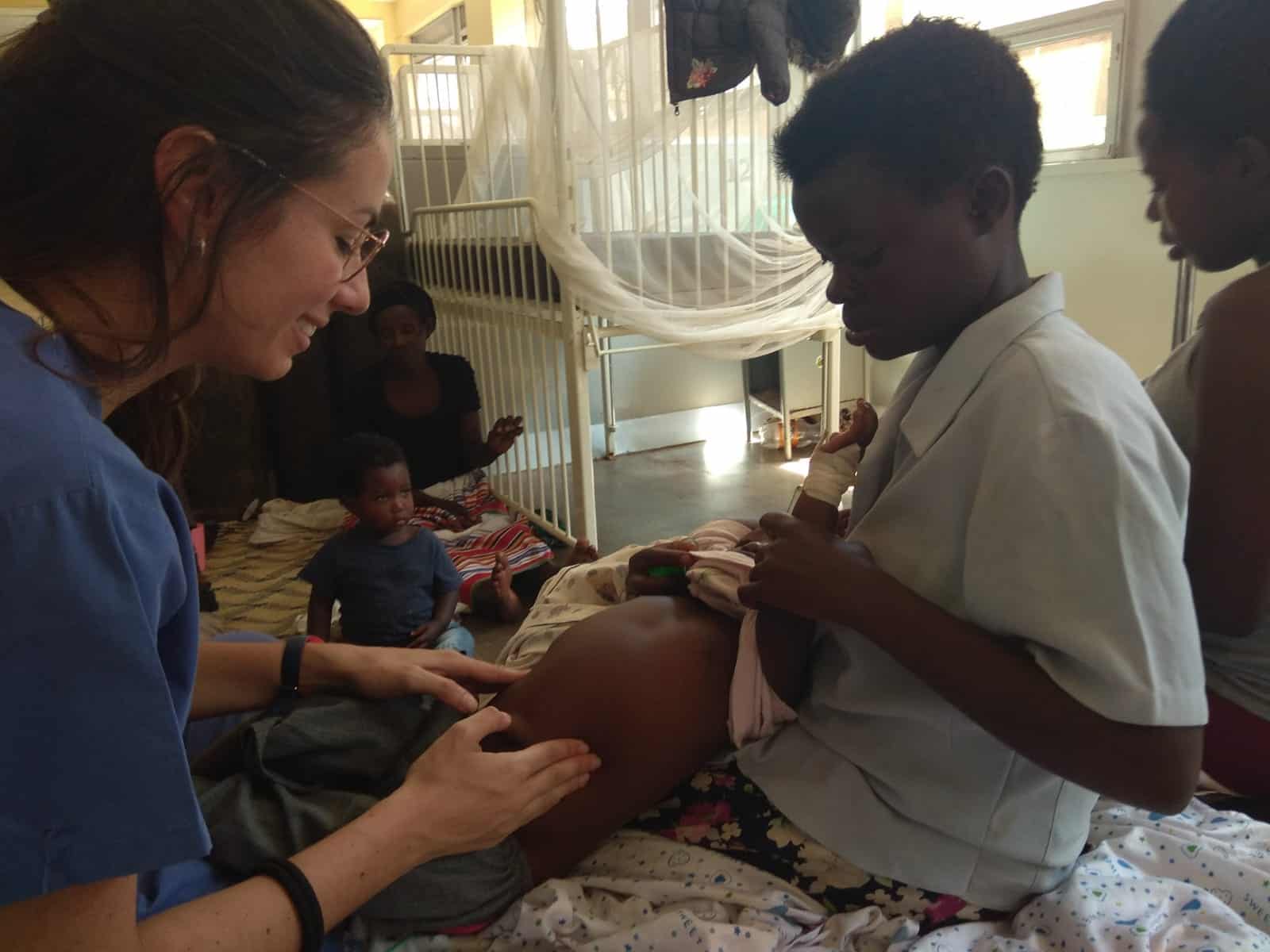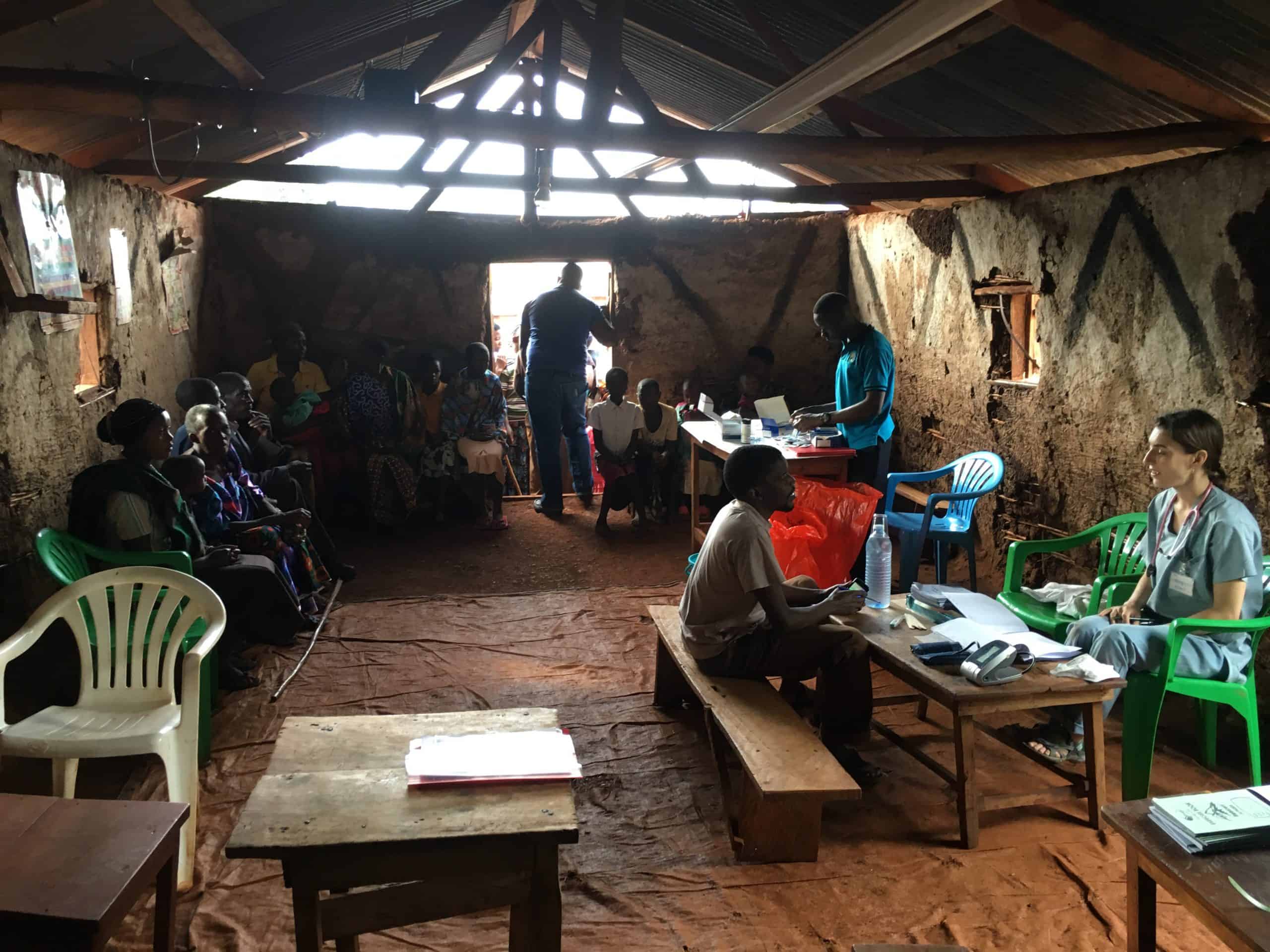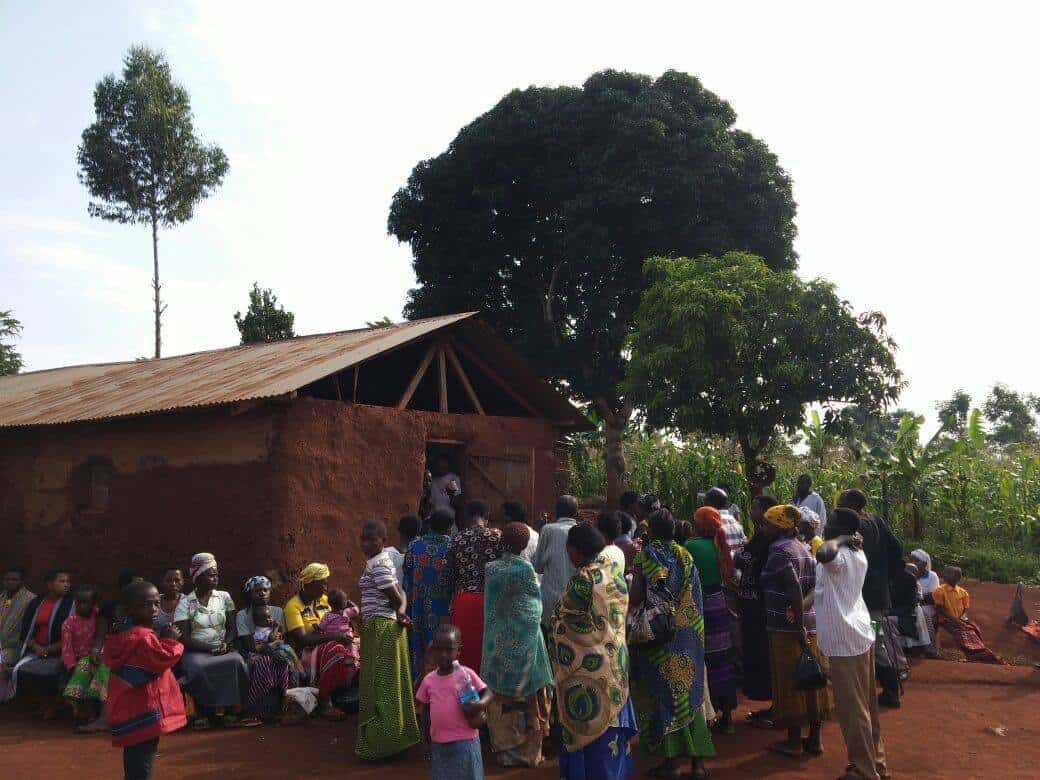Brit Olam operates mobile clinics in rural areas where no community medical health care is provided by the local authorities. Our mobile clinics staffed by international medical volunteers- doctors and nurses, and provide critical medical care to the most vulnerable and poor populations. Please help us ensure healthy lives and wellbeing- an essential ingredient for sustainable development
Background
The Ugandan health system is organized so that there are government health centers in the large towns where, ideally, there is a general doctor, but more commonly a clinical officer. In mid-sized towns, there are “health centers” usually staffed by a nurse. Small towns and the remaining rural areas (most Ugandans live in the rural areas), have no health services at all. The large distances and dirt roads make access to the health centers too expensive, too far, and inaccessible to a large part of the population. Thus, our aim is to enable physician volunteers conducted a mobile clinic in villages in the area on a regular basis.
Sponsorship programs:

General support
Your contribution will allow us to run the program on a regular basis, in a stable and continuous manner. Your donation will help us financing for fuel, vehicles, food for the staff on work days and more.
We are proposing 5 different types of donation:
- $1,000: I would like to support the medical team at the cost of $1,000
- $500: I would like to support the medical team at the cost of $500
- $200: I would like to support the medical team at the cost of $200
- $100: I would like to support the medical team at the cost of $100
- $50: I would like to support the medical team at the cost of $50

Supporting a physician volunteer
Doctors and nurses volunteering with the project are traveling for a period of 3 months or more. Our volunteers are entitled to full coverage of expenses – including flights, visas, insurance and living expenses. Volunteers must complete travel vaccination and acquire needed medications including malaria prevention meds.
Your donation will enable our volunteers to take this opportunity and use their medical skills in order to help other in need. Here, we offer 3 types of donation:
- $2,400: I would like to support the medical team’s travel for a period of 3 months at the cost of $2,400
- $1,600: I would like to support the medical team’s travel for a period of 2 months at the cost of $1,600
- $800: I would like to support the medical team’s travel for a period of 1 month at the cost of $800

Supporting equipment and medicine for an outreach clinic
The large distances and dirt roads make access to the health centers too expensive, too far, and inaccessible to a large part of the population. Our staff travels approximately 8 times a month to different villages around the area of the main hospital.
Our medical team takes care of all the local population’s needs- blood tests, diabetes tests, HIV, sexually transmitted diseases, vaccines and more. These require a large variety of medical equipment, including needles, urine and blood tests, medication and hospital referrals if needed.
Your donation will enable us to hold these travel days. You may choose to donate:
- $2,400: I would like to support a full month of travels (8 days) at the cost of $2,400
- $1,200: I would like to support half a month of travels (4 days) at the cost of $1,200
- $300: I would like to support one travel at the cost of $300
- I would like to choose how many days I wish to support.

Establish outreach clinic
To this day, our clinics take place in a small, dilapidated room that usually serves as a local store/ church/ school class or any other building at the village. The building is cleared out every time the medical team arrives, and is converted into a medical clinic.
We strive to establish dedicated buildings for outreach clinics that will be located in each of the designated villages.
If you have not found a suitable option for you to donate, please contact us and we will be happy to tailor an option for you.
Let's start from the beginning...
The Mobile Medical Clinics are a significant element in the “Israeli Medicine on the Equator” – I.M.E. program The Program in Uganda has been operating since 2005. . The initiative is based on overlapping medical teams volunteering for a period of several months. Most teams consist of two to four doctors and nurses.
The program’s main goal is to provide operational assistance to the Kiboga District Hospital and support for developing its medical capabilities. This hospital is located in a rural area 120km northwest of Kampala’s capital city, in one of the poorest districts in Uganda. Furthermore, this program aims to implement an ongoing program that improves local capacities and prioritizes sustainability. This is accomplished by providing community clinics and an education training course to medical personnel at the hospital, to advance health practices for adults, children, and families; and thereby improving the living conditions and quality of life of the local community in this region of Uganda. The Israeli medical team works in close collaboration with local health workers and municipality.
The outreach clinics idea came from the understanding that small towns, villages and the remaining rural areas (in which most Ugandans live), have no health services at all.
After consulting with the District Health Director and other local medical personnel, the village of Kabuye was selected for the first clinic. Kabuye, located one hour away on rough roads, is set in a vast pastureland in an area considered the district’s dairy producer.
The Kabuye mobile clinic takes place in a small, dilapidated room that serves as a local store, which is cleared out every time the clinic arrives. The back of the room is the patient intake – patient history, a very basic physical examination, initial lab tests, and medicines distribution. In front of the room, the triage and HIV tests take place. There is a broad range of problems – many new diagnoses of HIV, many STDs and skin diseases, many chronic problems that have never been treated.
After several visits to Kabuye, a second field clinic was started in the village of Degaya. This village was selected because it is one of the poorest in the region, and many children arrive in the hospital with severe malnutrition. The clinic in Degaya is held in a church in the centre of the village. Each time, dozens of villagers wait outside the church for the volunteers to arrive to receive medical treatment. The need is enormous. Several children with convulsive illnesses have never been treated. Other cases include undiagnosed TB, and a host of untreated chronic diseases, and much more.
Education and training for medical staff
Due to the shortage of doctors in the hospital (one doctor per shift in the entire hospital), intake on most patients is done by the clinical officer, who has basic training in the treatment of only common medical conditions and emergencies.
To improve the treatment of all patients and have a sustainable long-term effect, educational meeting and lectures with the clinical officers and nursing staff in an effort to expand their knowledge about various subjects identified as problematic and to modify problematic work procedures. Lectures were previously given by the volunteers, who have worked closely with the staff throughout the year and have good relations with them. The approach is positive and the staff shows great willingness to learn and change work procedures and methods. A structured educational program is currently being developed so that local clinical officers themselves will conduct lectures in the future.
Stories from the field
Our volunteers speak and testify: the sights they see in Uganda
Copyright © 2022 Brit Olam